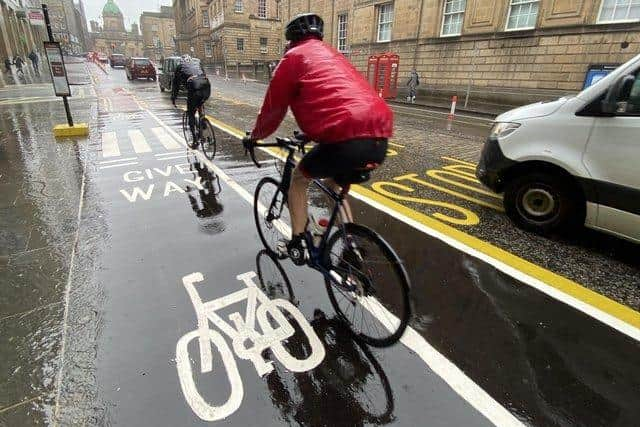Eco-ableism: Researchers to study discrimination against disabled people from eco-friendly campaigns in West Lothian
and live on Freeview channel 276
Examples of “eco-ableism” include requirements to put out recycling bins which may not be possible for disabled or chronically ill people, or the removal of car parking spaces to make way for cycle lanes, researchers said.
The project, which will run from June to August, will gather personal experiences from adults in West Lothian.
Advertisement
Hide AdAdvertisement
Hide AdOnce findings are collated and assessed by social scientists at Heriot-Watt, the research team hopes to work with local authorities and policymakers to suggest solutions, intended to be rolled out in West Lothian and more widely in Scotland.
Professor Steve McLaughlin, deputy principal of research and impact at Heriot-Watt university, said: “We know from previous research that there are barriers and challenges that many people living with disabilities and long-term health conditions face when attempting to adopt a greener lifestyle.
"These range across a breadth of other issues, such as being unable to physically transport their recycling bins from their property to the street curb.
“To help address these challenges, we want to gain a more detailed picture of the issues that exist and speak to those in the community who encounter these problems. We want to learn more about people’s lived experiences which will shape and inform our research, and help tackle inequalities.”


Advertisement
Hide AdAdvertisement
Hide AdProfessor Kate Sang, from the university’s school of social sciences, will lead on the project.
“Eco-ableism can be defined as being a failure by non-disabled policy makers and environmental activists to address the impacts upon and needs of the disabled community when considering climate action initiatives,” she said.
“This new project team centre the voices of disabled people to understand their daily life choices when trying to adopt more environmentally practices, to understand the barriers they may face and suggest solutions for more disability inclusive environmental action.”
The project, which will run in collaboration with West Lothian Libraries and The Partnership Centre in Carmondean, Livingston, is supported by the Scottish Government Public Library Quality Improvement Fund.
Comment Guidelines
National World encourages reader discussion on our stories. User feedback, insights and back-and-forth exchanges add a rich layer of context to reporting. Please review our Community Guidelines before commenting.
